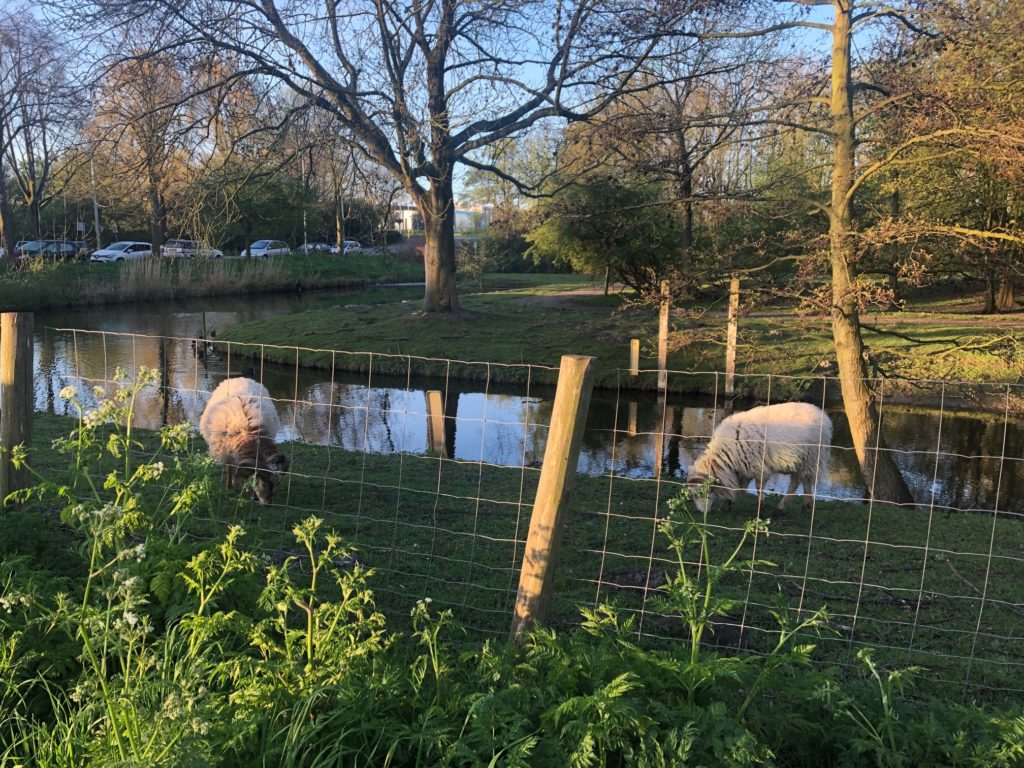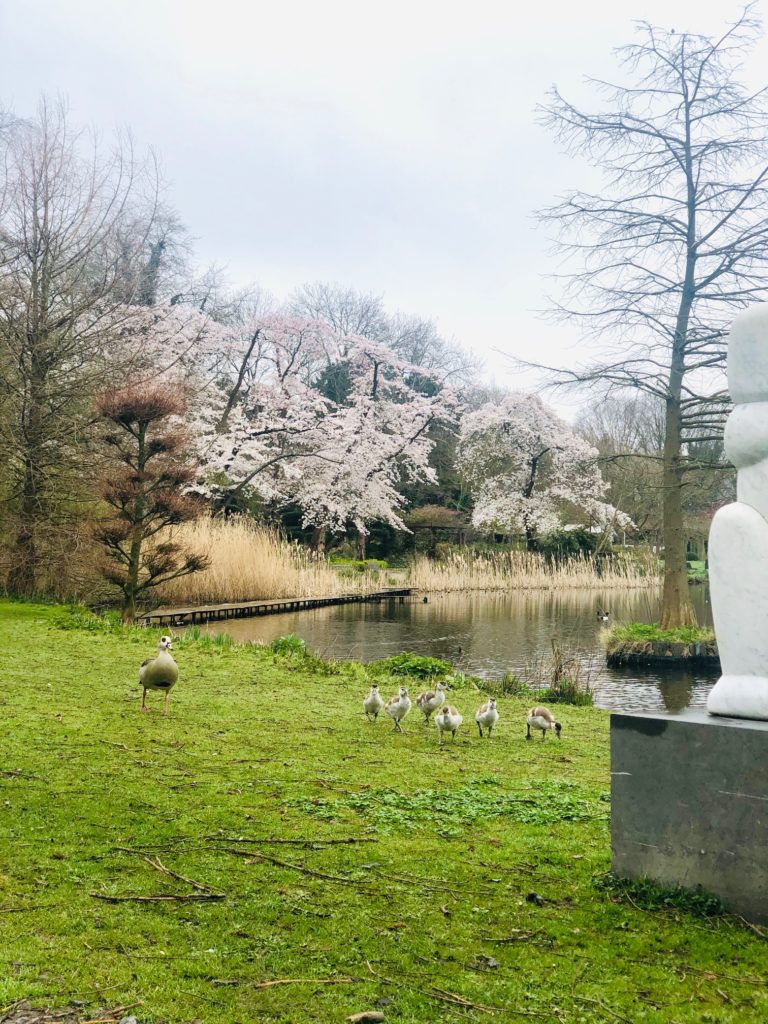The Reverted World: Time for Nature to Take the Driver’s Seat
contribution: Anh Dinh
As the Covid-19 situation is urging all over the world, people are subject to social distancing –either refraining as much travelling as possible or keeping a distance from other people. It has gotten worse as people are demanded quarantine at home, leading to cancelled events and abandoned gathering venues, etc.

Sheep calmly grazing their breakfast in Amsterdam Noord, April 2020.

Geese at Amstelpark in March 2020.

